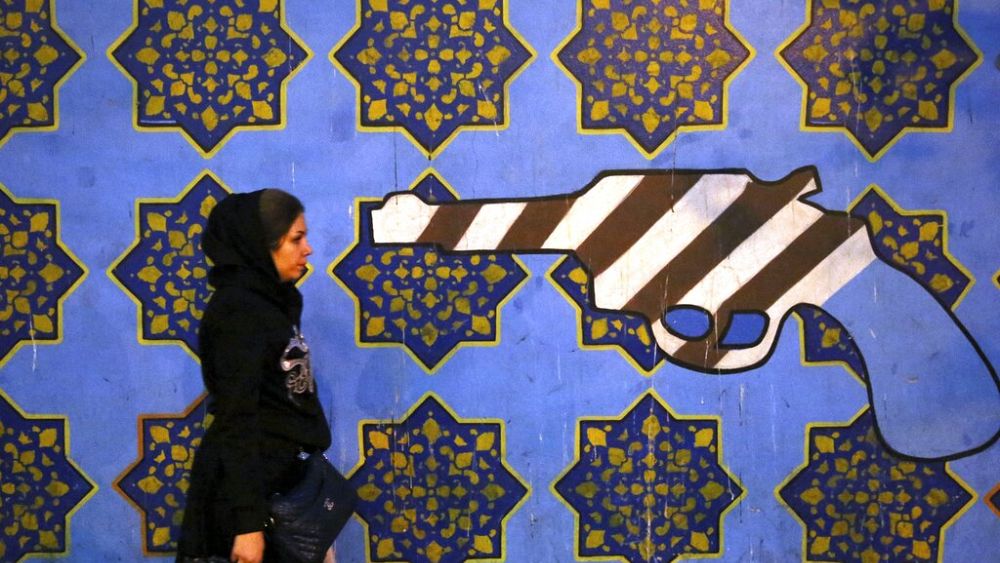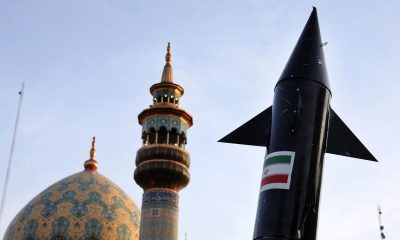General News
‘Unbearable’ alleged assault on Iran teen condemned in Europe

“Once again a young woman in Iran is fighting for her life. Just because she showed her hair on the subway,” wrote German Foreign Minister Annalena Baerbock.
European leaders and rights groups have expressed concern over the alleged “severe assault” of an Iranian teenage girl by the country’s so-called morality police that left her in a coma.
According to the Norway-based NGO Hengaw, 16-year-old Armita Garawand was physically attacked by female officers of the gast-e ersad (guidance patrol) on 1 October while travelling on Tehran’s metro without her veil.
Sensitive to possible public outcry over the event, Iranian authorities have denied this, with the state IRNA news agency reporting the student “fainted” due to not eating breakfast.
She is currently in intensive care, with a reportedly strong security presence around the hospital.
“Once again a young woman in Iran is fighting for her life. Just because she showed her hair in the subway. It is unbearable,” German Foreign Minister Annalena Baerbock wrote on X, formerly Twitter, on Tuesday.
News of the incident has swept through social media, with video circulating that purports to show police officers pushing the young girl, without a head scarf. Her body is then dragged away.
Garawand sustained a head injury and collapsed after being shoved into a metal bar during the fray, the opposition outlet Iran International reported.
Iranian authorities have not released footage of what happened inside the train, despite every carriage on Tehran’s metro having multiple CCTV cameras.
Iran Human Rights, another Norway-based NGO, called for “an independent international investigation”, saying Tehran had “a long history of distorting facts and hiding evidence of its crimes.”
“The Islamic Republic continues to harass and repress women under the pretext of fighting violations of the compulsory hijab,” said its director Mahmood Amiry-Moghaddam.
The teen, originally from Kermanshah in western Iran, is being treated at Fajr Hospital in Tehran, according to Hengaw.
It posted a photo of her in a hospital bed, connected to a gastric tube and with her head and neck covered in bandages.
Maryam Lotfi, a journalist with the reformist Shargh daily, was briefly detained while trying to interview the mother, they added.
Intelligence services have allegedly pressured friends and family to deny the role of the morality police, and confiscated their phones to prevent photos from reaching the media, noted Iran International.
Iran’s authorities are on high alert. The incident comes a little more than a year after the death of Mahsa Amini, following her arrest for allegedly violating Iran’s strict dress code.
Her death – reportedly after suffering several violent blows to the head from officers – sparked nationwide protests that were one of the biggest challenges to the Iranian regime in years.
More than 550 people were killed and nearly 20,000 people detained, with security forces cracking down hard on the dissent, report Iran Human Rights.
In Iran, women must cover their hair with a headscarf by law. The rules are deeply unpopular among large parts of the population, with Iranian women increasingly not wearing their hijabs following last year’s unrest.
A new bill is expected to soon become law that imposes further punishments on unveiled women, as authorities try to curb defiance of the rules.
“A year after the killing of Mahsa Jina Amini in Iranian state custody following her arrest over her hijab, and after hundreds of killings by state security forces in the streets during the protests that followed, another young woman is in critical condition and another family in Iran is in the same heart-wrenching situation,” said Hadi Ghaemi, executive director of the Center for Human Rights in Iran (CHRI).
“The Iranian government’s history of violence against women and its culture of impunity cannot be denied,” Ghaemi said. “The international community must join together to impose meaningful and coordinated diplomatic costs on a government that is now regularly killing its citizens in order to silence them.”
Disclaimer: No copyright infringement intended. All rights and credits reserved to respective owner(s).
























